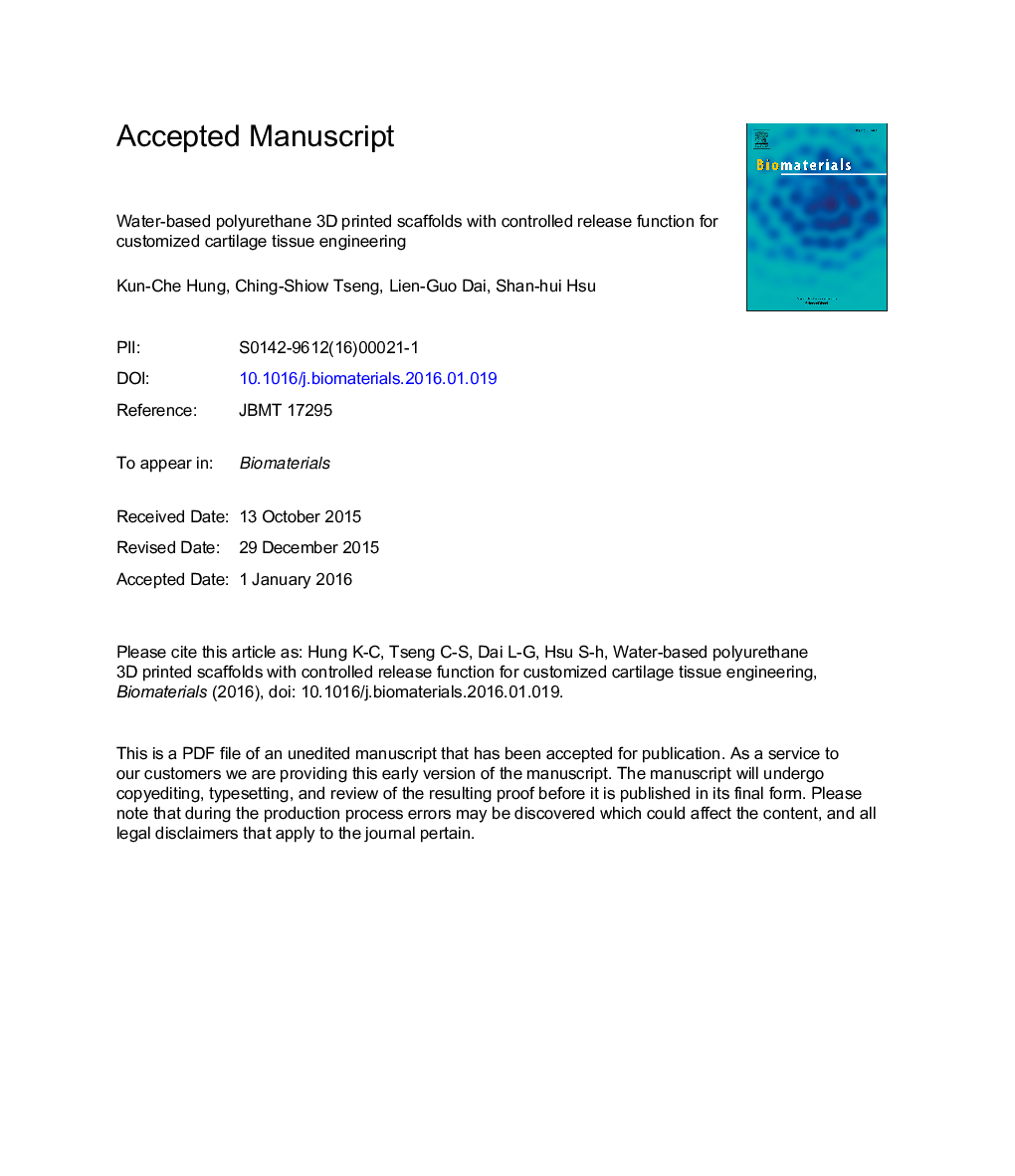| Article ID | Journal | Published Year | Pages | File Type |
|---|---|---|---|---|
| 6485131 | Biomaterials | 2016 | 49 Pages |
Abstract
Conventional 3D printing may not readily incorporate bioactive ingredients for controlled release because the process often involves the use of heat, organic solvent, or crosslinkers that reduce the bioactivity of the ingredients. Water-based 3D printing materials with controlled bioactivity for customized cartilage tissue engineering is developed in this study. The printing ink contains the water dispersion of synthetic biodegradable polyurethane (PU) elastic nanoparticles, hyaluronan, and bioactive ingredients TGFβ3 or a small molecule drug Y27632 to replace TGFβ3. Compliant scaffolds are printed from the ink at low temperature. These scaffolds promote the self-aggregation of mesenchymal stem cells (MSCs) and, with timely release of the bioactive ingredients, induce the chondrogenic differentiation of MSCs and produce matrix for cartilage repair. Moreover, the growth factor-free controlled release design may prevent cartilage hypertrophy. Rabbit knee implantation supports the potential of the novel 3D printing scaffolds in cartilage regeneration. We consider that the 3D printing composite scaffolds with controlled release bioactivity may have potential in customized tissue engineering.
Related Topics
Physical Sciences and Engineering
Chemical Engineering
Bioengineering
Authors
Kun-Che Hung, Ching-Shiow Tseng, Lien-Guo Dai, Shan-hui Hsu,
